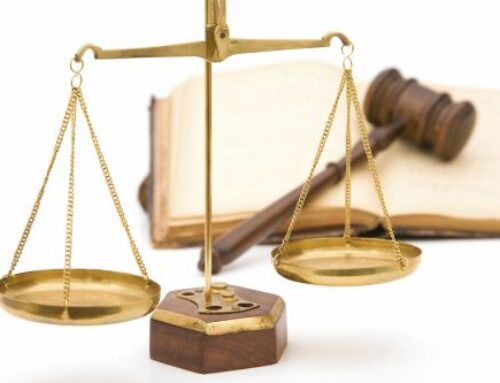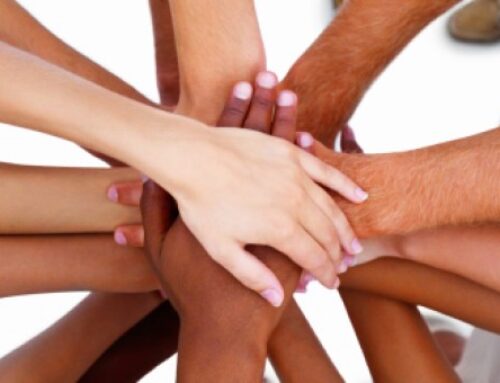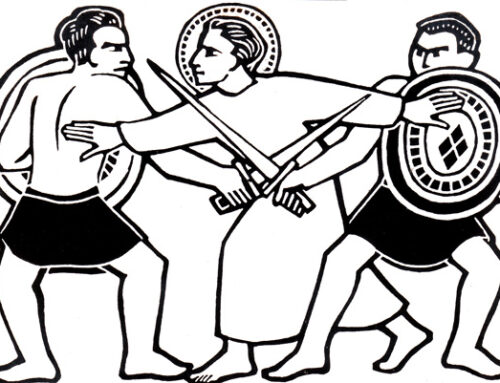Injustice is Everywhere
November 10, 2016
Categories: Justice
This blog post is Part 1 in a 12-part blog series on Christianity and justice. At its core, justice is about fairness and equity. In a just society, people should have equal opportunity to succeed and pursue their dreams. If someone breaks a rule or does something wrong, their punishment should fit the crime, and not be different based on the person’s background or standing. Finally, all people should have basic human rights protected, such as protection and safety, access to food, water, and medicine, and the opportunity to pursue an education.
Injustice is everywhere. Depending on the cultural groups you identify with, you might already know this. You may have experienced the pain and frustration of injustice. For others, you might think that the world is fair. Growing up, I believed the world was mostly fair. As a White, heterosexual, cis-gender (i.e., my gender identity matches my biological sex) man growing up in a middle-class family, I had plenty of opportunities. Both my parents had graduate degrees, and I was expected to follow in their footsteps. The world was open to me, and I saw a direct correlation between my own effort and my success.
Growing up, I experienced privilege, which means that I had a set of unearned advantages that weren’t based on my own effort, but were just there. In our society, certain cultural groups have had more power and influence, whereas others have had less power and influence. Some cultural groups have been the victims of discrimination and oppression. For example, think about the following aspects of culture. In our society, which cultures have more power and influence? Which cultures have less power and influence?
- Gender: Man, Woman, Transgender
- Race: White, Black, Asian, Latino, Native American, Multiracial
- Sexual Orientation: Heterosexual, Gay, Lesbian, Bisexual
- Religion: Christian, Muslim, Jewish, Hindu, Latter-Day Saints, Spiritual but not religious, Atheist, Agnostic
- Ability Status: Able-bodied, Physical disability (e.g., amputee, paralyzed), Sensory disability (e.g., blind, deaf), Psychiatric disability (e.g., schizophrenia, bipolar)
- Socioeconomic Status: Upper class, Middle class, Lower class
In what areas of your life do you experience more privilege? In what areas of your life do you experience less privilege?
If you experience a relatively high level of privilege, it might be difficult for you to notice the injustice that is occurring in your city, country, and world. I had to make a concerted effort to engage with people who were different from me and listen to their stories and experiences. When I did this, I began to see that the world isn’t quite as I thought it was.
For example, when I see a police officer, I tend to feel safe. I think that the police officer is there to protect me. My experiences with police officers have been mostly positive. But this isn’t the case for some of my friends and colleagues who are Black. Many of them have a different experience when they see the police.
Or take another example: I’m not married, but being married and having a family was something that I always wanted for myself. I figured it would happen when I was ready and met the right person. But for my friends who identified as gay or lesbian, until recently, they couldn’t have this dream. The hope of falling in love and getting married was denied to them.
Finally, our research team has been doing some work with the Syrian refugee crisis. In the United States, I often take it for granted that I live in a country that is mostly safe and secure. In other parts of the world, this isn’t the case. People live in areas where they have to deal with government corruption, threats to their safety, and difficulty obtaining basic necessities such as food, water, shelter, and medicine.
These are just a few examples of injustice in our country and world. There are countless others. It is important to increase awareness of the injustice that is occurring around us, so we can do something about it and create a more just and fair world. This series of blog posts explores the links between justice and Christianity. I believe justice is something that is very close to the heart of God. However, Christians sometimes struggle with understanding and prioritizing justice. In the next few posts, we will look at how justice shows up in the Bible—in the Old Testament, the life and teachings of Jesus, and the New Testament. Then, we will discuss some roadblocks. In other words, why do some Christians struggle with promoting justice? Finally, we will explore three ways to help promote justice in our lives and world.
Discussion: How do you view the world? Do you think it is mostly just, mostly unjust, or a mix? Have you experienced injustice in your own life? If you had a more privileged upbringing, what is one step you could take toward educating yourself about the experiences of others who face injustice?
Related Thoughts
20 Comments
Leave A Comment

Subscribe To My Newsletter
Join my mailing list to receive the latest blog posts.
Receive my e-book “The Mental Health Toolkit” for free when you subscribe.






[…] a 12-part blog series on Christianity and justice. (If you missed the first post, you can find it here.) In the next three posts, we will explore what the Bible has to say about justice. When […]
[…] a 12-part blog series on Christianity and justice. (If you missed the first post, you can find it here.) For Christians, the life and teachings of Jesus represent the high point or climax of the Bible. […]
[…] a 12-part blog series on Christianity and justice. (If you missed the first post, you can find it here.) In addition to the Old Testament and the life and teachings of Jesus, justice was a major focus […]
[…] a 12-part blog series on Christianity and justice. (If you missed the first post, you can find it here.) Christians have different views about justice. Some Christians view justice as a core aspect of […]
[…] a 12-part blog series on Christianity and justice. (If you missed the first post, you can find it here.) Specifically, we have been talking about barriers that some Christians have around engaging in […]
[…] a 12-part blog series on Christianity and justice. (If you missed the first post, you can find it here.) We have been talking about barriers that hold Christians back from getting involved in supporting […]
[…] a 12-part blog series on Christianity and justice. (If you missed the first post, you can find it here.) Now that we have talked about the biblical foundation for justice, as well as some barriers that […]
[…] a 12-part blog series on Christianity and justice. (If you missed the first post, you can find it here.) In these final blog posts, we are talking about how to actually implement justice into our […]
[…] a 12-part blog series on Christianity and justice. (If you missed the first post, you can find it here.) As you begin with an attitude of humility, and do some thinking and exploring about what problems […]
[…] a 12-part blog series on Christianity and justice. (If you missed the first post, you can find it here.) After doing some background reading and research to get educated on the issue you are passionate […]
[…] a 12-part blog series on Christianity and justice. (If you missed the first post, you can find it here.) We have reached the final step—putting justice into practice. Consider the example of […]
[…] have a professional identity as a counseling psychologist that strongly values social justice issues, including those related to gender. I struggled to square these values with some of the values of […]
[…] concrete steps to ensure that all people are given equal opportunities and treatment in our world. Our world is very far from being just. There are huge inequalities in resources and opportunities. Some people buy extravagant homes, […]
[…] are we subject to the way the world operates, which involves the abuse of power, oppression, and injustice. Instead, Jesus is ushering in a new kingdom, one that is defined by love for one’s neighbor, […]
[…] began my graduate program in Counseling Psychology, I started to develop stronger convictions about social justice and advocacy for marginalized groups. I was concerned about how gays and lesbians were treated by religious individuals and the […]
[…] don’t care about science. In the past, Christians have also resisted progress on issues such as racial reconciliation and equal rights for LGBT individuals, partly due to a strict adherence to particular beliefs and […]
[…] Some Christians are very focused on justice. It is an important aspect of their faith to advocate for the equal rights of underprivileged groups, whether the focus is racial/ethnic minorities, women, LGBT individuals, or the poor. […]
[…] I taught a course on Multicultural Counseling. A big part of what we talk about is how we can help advocate for justice in the lives of our […]
[…] serving the poorest of the poor in India. Religion has motivated countless efforts of charity and justice. Yet religion has also motivated violence, war, and extremism. Religion intensifies emotion, for […]
[…] feel a similar tension around issues related to political differences and social justice advocacy. I care deeply about justice and want everyone to have similar opportunities and treatment in our […]